BANKRUPTCY REGISTERS, REFEREES, AND JUDGES OF WEST TENNESSEE
1867 - 1879
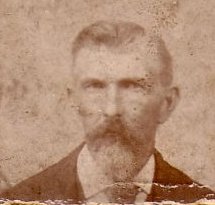 Samuel Watkins Hatchett served as Register in Bankruptcy from 1867 until 1879. Hatchet was born October 3, 1816, and served as Circuit Clerk in Gibson County, and as Controller of the State of Tennessee before being named Register in Bankruptcy. He died in 1887 and was buried in Oakland Cemetery, Trenton, Gibson County, Tennessee.
Samuel Watkins Hatchett served as Register in Bankruptcy from 1867 until 1879. Hatchet was born October 3, 1816, and served as Circuit Clerk in Gibson County, and as Controller of the State of Tennessee before being named Register in Bankruptcy. He died in 1887 and was buried in Oakland Cemetery, Trenton, Gibson County, Tennessee.
1878 - 1904
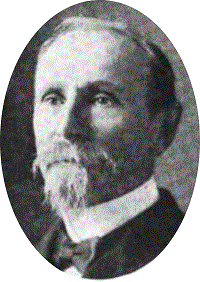
Thomas J. Latham was appointed Register for Memphis by Chief Justice Case on December 4, 1867.
[28]
[28] Memphis Daily Post, December 4, 1867, p. 4.
His appointment met with the approval of Judge Trigg. Thomas Jefferson Latham was born November 22, 1831, in Washington, North Carolina, and moved with his parents to Tennessee in 1833. After graduating from the Western Military Institute in Georgetown, Kentucky, he studied and practiced law in Dresden, Tennessee. Latham opposed secession but did not support the Union Army either. After the war, he practiced law in Memphis until he was appointed Receiver in December 1867.
...
Latham opened his office on Main Street in Memphis a few days after his appointment was confirmed. One week after his appointment, the first warrants in bankruptcy were issued, and on December 14, the Memphis Daily Appeal carried the first notices of the filing.
Three such notices were issued that day, and they continued almost daily throughout the rest of 1867 and most of 1868. After dwindling in the following years, there was a run up in bankruptcy filings up to the repeal of the 1867 Act in 1878.
Even though the 1867 Act was repealed in 1878, T.J. Latham continued to serve as Register into early 1880 to hear applications for discharge and other matters. When a bankrupt wanted to receive a discharge, a petition was filed and a second notice was given.
T.J. Latham, who came to be called “Judge,” was appointed Receiver for the old City of Memphis by Judge John Baxter
of the United States Circuit Court for the Sixth Circuit on February 15, 1879.
[33]
[33] Memphis Daily Appeal, February 13, 1879, p. 4.
The state legislature repealed the charter of the City of Memphis earlier that month after it was unable to continue to fund its obligations due to ravages of yellow fever. The following year, Judge Latham purchased the assets of the Memphis Water Company for $155,000 and served as its president.
[34]
[34] The Memphis Daily Avalanche, March 6, 1880, p. 4.
He inherited quite a task, as the existing waterworks were not adequate for the needs of the city.
[35]
[35] Public Ledger, July 10, 1880, p. 1; Memphis Daily Appeal, September 5, 1880.
This was before the discovery of the Memphis aquifer in 1886. Memphians in 1880, hoping to avoid another outbreak of Yellow Fever, voiced their preference that their water be pumped from the Mississippi rather than the Wolf River, and Judge Latham set out to accommodate them by purchasing and installing modern pumping equipment.
Judge Latham lived to be 78 years old and died July 24, 1911. He is buried at Elmwood Cemetery. >>
1878 - 1904
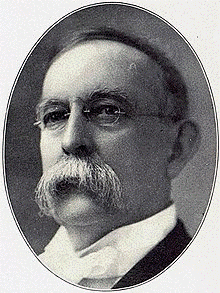
Eli Shelby Hammond was nominated by President Rutherford B. Hayes on June 15,1878, to be the first district judge for the Western District of Tennessee. He was confirmed by the Senate on June 17, 1878, and served until his death on December 17, 1904.
Judge Hammond was born in Brandon, Mississippi, and graduated from Union University, then in Murfreesboro, Tennessee in, 1857 and from the Cumberland School of Law in 1858. ...
He was in private practice in Ripley, Mississippi from 1859 to 1860, and in Memphis, from 1860 to 1861. He was a captain in the army of the Confederate States of America from 1861 to 1865, and then returned to private practice in Ripley until 1868, and in Memphis until 1878.
The Bankruptcy Act of 1898 established the position of referee in bankruptcy "to assist expeditiously transacting the bankruptcy business". The first bankruptcy acts (1800 and 1841) provided for the appointment of bankruptcy commissioners by the district judges. The Bankruptcy Act of 1867 provided for the appointment of registers in bankruptcy.
Judge Hammond appointed the first Referees in Bankruptcy to serve the Western District of Tennessee on November 28, 1898. They were R[ichard] D[udley] Jordan, Sr., who served in Memphis and John R. Walker, Sr., who served in Jackson.
>>
1898 - 1907
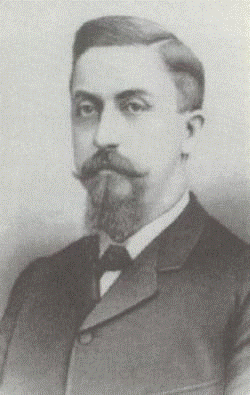
R.D. Jordan served as referee in Memphis from November 28, 1898, until his death in 1907. On March 4, 1899, Mr. Jordan conducted the first meetings of creditors provided for under the Bankruptcy Act in his office at 279 Main Street, Memphis. The bankrupts were Henry Hunt and Seymour Wurzburg.
...
Referee Jordan’s parents were Rix Jordan and Sarah Ann Banks of Essex County, Virginia. Jordan was educated at Hampton Military Institute. He fought in the War Between the States [Civil War] enlisted April 1861 in Company G, First Virginia Infantry Regiment, assigned to Pickett's Division, which was the nucleus of Longstreet's Corps, of the Army of Northern Virginia under the command of General Robert E. Lee. He was wounded at the Battle of Seven Pines in May 1862, and again at Gettysburg on July 3,1863, and again at Five Forks on March 31, 1865, where he was captured and sent to Point Lookout Prison Camp for Confederates. Jordan was released in June 1865, after signing the Oath of Allegiance. Jordan also fought in the engagements at Bull Run and Manassas, Fredricksburg, Suffolk, Richmond, Petersburg, Drewy's Bluff, Bermuda Hundred, and Dinwiddie's Courthouse.
After the war, Jordan was admitted into the practice of law in 1867. He became a member of the Memphis firm Randolph, Hammond and Jordan. In 1873, he was elected Shelby County Attorney, and he was reelected to that post 7 times. Jordan served as President of the Memphis School Board and was appointed district Referee in Bankruptcy by District Judge Eli Shelby Hammond on November 28, 1878. Jordan was a Democratic delegate several times to national conventions.
Referee Jordan married Bettie Ann Crawford on Sept. 3, 1872. They had 5 children: Louise Crawford [Wm. Louis Davis], Laura Banks Jordan, Elvin [Eugene Michel Holder, M.D.], Richard Dudley Jordan II [Helen Fay Briggs], and West Crawford Jordan [1) Kathleen Smith and 2) Lucille Hays West].
Mr. Jordan is buried at Elmwood Cemetery, Memphis, Shelby County, Tennessee.
DurkeeBurgoyne originally shared this on 16 Sep 2010
1898 - 1919
John R[ussell] Walker, Sr. served as referee from November 1898 until his death in 1919. He was born in Dyer (later Crockett) County, Tennessee, December 2, 1855, son of Confederate Captain William M. and Sarah Davis Walker. He was reared on a farm and attended the common schools until eighteen years of age, when he became a clerk in a dry goods store at Friendship, Tennessee, continuing during his nineteenth and twentieth years, and reading law in the meantime. He taught school four months, then entered the law office of Cooper and Buchanan, at Alamo, Tennessee, and was admitted to the bar in 1877.
...
He at once became a partner with his preceptors, the connection lasting until January 1, 1882. The firm then dissolved, and Judge Walker entered upon a large practice in Gibson and Crockett Counties (citing Goodspeed).
A sketch of the life of Judge Walker written at the time of his death states that he was admitted to the bar in 1877 and remained with the law firm of Cooper and Buchanan until 1882. He then entered a partnership with Confederate Captain Wise A. Cooper and the firm became Cooper and Walker. When Captain Cooper left Trenton, the firm became Walker and Wade (later W.W. Wade was Atty. Gen.) and the firm became Walker and Biggs (Albert Biggs, who later became a prominent Trenton and Memphis lawyer). The firm was then Walker and Hunt (Atty. Charlie Hunt of Brazil). This firm was of short duration and then became Walker and Clark (Sid Clark later became Judge, Court of Appeals). W.R. Landrum was then of the firm of Walker and Landrum, after which the firm became Walker and Walker; when John R. Walker, Jr. completed his law education at Vanderbilt University.
Judge Walker had been appointed Referee in Bankruptcy in 1900 [sic] by Judge Hammond of Huntingdon, Tennessee.
There is a tradition in the family of the Judge that he became a Republican after the “War of the Roses” (between Bob and Alf Taylor, both Governors of Tennessee). Judge Walker controlled the Republican party patronage in this section for many years.
He was a favorite of many Gibson County lawyers and popular with the public in general.
It seems well to say here that his son, John R. Walker, Jr. (see below), went to Memphis after World War I and had a successful law practice. He entered World War II, from which he had wounds which cost him his sight. Russell Walker, the Judge’s grandson, is a successful patent lawyer in Memphis and was also in World War II.
Miss Sarah Elizabeth [Edith] Walker, an accomplished musician, is the Judge’s only daughter. Mrs. Walker was the former Miss Bessie Taylor of the Haywood County Tabernacle family of Taylors.
Frederick M. Culp and Mrs. Robert E. Ross, Gibson County Past and Present: The First General History of One of West Tennessee’s Pivotal Counties, Gibson County Historical Society (Trenton, Tennessee, 1961), pp. 264-65.
Mr. Walker died February 3, 1919, and is buried at Oakland Cemetery in Trenton, Gibson County, Tennessee. He had been a member of the Commercial Law League of America since February 25, 1902.
In 1903 the Rand bill became law substantially amending the Bankruptcy Act of 1898. Among other things, it created courts of bankruptcy and set forth their jurisdiction. Significantly, the amendments changed the common law of evidence to permit wives to be called upon to testify about business dealings to which she is or has been a party.
1905 - 1919
A[lvin] A[lmary] Hornsby served as referee in bankruptcy in Memphis for 14 years [1905 – August 31, 1919). He was born August 25, 1875, in Palmersville [Martin], Weakley County, Tennessee, and died December 29, 1956 in Tampa, Florida. He was a graduate of the Cumberland University School of Law and practiced law in Memphis for 40 years. He served as assistant district attorney and then referee in bankruptcy for 14 years. He spent his last fourteen years in Tampa, Florida.
1908 - 1919
Judge J.A. Lancaster of Lexington was appointed referee by Judge John E. McCall on December 8, 1908, to succeed Referee Walker. Judge Lancaster had been serving as County Judge in Henderson County when he was appointed. He served are referee until 1919.
1908 - 1919
Pearl Wilson Maddox was named referee in bankruptcy in 1910 in Huntingdon, Tennessee. He served for twelve years. He practiced law with his son, Webster Poe Maddox (1899-1987), in the firm Maddox, Maddox and Lassiter, and was also the father of Dwayne Depew Maddox (1897-1945), who served as United States Attorney for the Western District of Tennessee. Referee Maddox died January 9, 1949, and is buried in Clark Cemetery, Huntingdon, Tennessee.
1919
Referee Hornsby declined reappointment in 1919; Judge McCall appointed Lieut. Col. Harry Bennett Anderson to succeed him as referee. [49]
[49] The Commercial Appeal, September 3, 1919, p. 7.
1919-1921
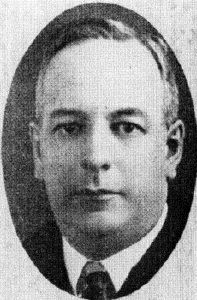
Harry Bennett Anderson served as referee in Memphis from September 1, 1919 to 1921. He succeeded A.A. Hornsby. Anderson was born on November 5, 1879, in Berlamont, Van Buren County, Michigan. His parents were Seneca and Adelaide Anderson who moved from Michigan to Memphis in 1889. He received a Master of Arts from Christian Brothers College, a Bachelor of Philosophy from the University of Chicago, and a Bachelor of Law degree from Columbia University in 1904.
...
After college he entered practice in Memphis and later formed the law firm of Brown and Anderson. He was active in the Republican party and served as a delegate to several state conventions. In 1904 he was selected district elector for Theodore Roosevelt and occupied a similar position for Taft in 1908. He was again one of Roosevelt’s followers in Tennessee in 1912, being most prominent in the progressive movement of that year. Judge Anderson was also president of the Bar Association of Tennessee from 1909 to 1910 and continued to be active in the association until the beginning of World War I when he enlisted in the Army and was commissioned as a Captain. He was sent overseas in 1917 and was at Verdun when the Armistice was signed. He left the service with the rank of Lieutenant Colonel in the Judge Advocate General Corps.
After returning to private practice, he continued to be active in civic and professional organizations. He was a member of the Chamber of Commerce, the Masons, the Elks, Lumberman’s Club and the Independent Order of Odd Fellows. On September 12, 1925, he was appointed United States District Judge for Western Tennessee by President Coolidge. Judge Anderson brought to the bench a diversity of knowledge that made him a good lawyer and a good judge. While on the bench he continued to be public spirited and served as President of the Business Men’s Club of Memphis.
[50]
[50] History of the Sixth Circuit: A Bicentennial Project, published under the auspices of the Bicentennial Committee of the Judicial Conference of the United States, p. 112.
He was married to Patty Cook Anderson, and they had three sons and a daughter. The oldest son graduated from Harvard Law School; the second from West Point; and the third from Yale. Judge Anderson died on April 5, 1935, while holding court in Jackson.
1919-1921
S[amuel] Homer Tatum served as Referee in Jackson from 1921 until 1927(?).Tatum was born in Crockett County, Tennessee on October 14, 1889, and received his early education in the schools of Crockett County, where he graduated from high school.
He later attended Hall-Moody Institute, a college in Martin, Tennessee, and Cumberland University, at Lebanon, Tennessee, receiving his law degree at the last-named institution.
He holds the B.L., B. Ped.; L.L.B.; and B. For. degrees for college and university work.
...
Was admitted to the Kentucky Bar in May, 1912, and to the Tennessee bar in 1913.
Has been practicing law at Alamo and Jackson, Tennessee principally since 1913, retaining offices at these two places, but practicing in many of the counties of West Tennessee.
He was appointed clerk and master of the Crockett County, Tennessee Chancery Court in 1914, reappointed in 1920, resigned in 1921 to accept the office of Referee in Bankruptcy, for the Eastern Division of the Western District of Tennessee, consisting of sixteen counties, which office he now holds. Mr. Tatum was first appointed by Judge J.W. Ross, but has continued to serve under Judge H.B. Anderson, since the death of Judge Ross last July.
Referee Tatum was Republican elector for the Ninth Congressional district in Tennessee, 1920, casting the vote of that district for President Harding, – the first to be cast for a Republican president, from that district since the civil war. In 1922, he was Republican nominee for Congress from the same district, opposing Finis J. Garrett, the present Democratic minority leader in the house. He has been a member of the Republican State Committee from Tennessee for a number of years.
He is a member of the Elks, Moose, Masons, Woodmen of the World, and other orders.
His hobby is archeology, and he possesses one of the finest collections of stone age specimens in the South, now on display in the museum of Union University, Jackson, Tennessee.
In his nearly five years’ service as Referee, he has never had a question growing out of his administration decided adversely to his opinion, when carried to the Court on petition for review or otherwise.
[57]
[57] American Bankruptcy Review, Vol. 2, p. 343 (August 1924).
Mr. Tatum died May 9, 1960, in Alamo, Tennessee
1921-1922
On September 1, 1921, Judge Ross appointed Col. W.F. Poston referee for Memphis, replacing Referee Anderson. Poston, an attorney from Alamo, Tennessee, was, however, summarily dismissed by Judge Ross on April 11, 1922, as the result of an investigation undertaken by the Department of Justice. Poston was succeeded by C. L. Marsilliot, who had been named master in chancery by Judge Ross in September 1921.
1925-1935
Clarence L. Marsilliot was appointed referee in bankruptcy by Judge Ross on April 14, 1922. Upon his appointment, he declared that the office of the referee in bankruptcy “shall not be treated as a private fee mill.”
[61]
[61] The Commercial Appeal, April 16, 1922, p. 13.
He received the resounding support of the Memphis Association of Credit Men, who made note of his “vigorous application of bankrupt laws and his untiring efforts to see that creditors receive full consideration due them under this bankruptcy law; that it go on record as approving his work in having established the first real court of bankruptcy as intended by the federal bankrupt law.”
[62]
[62] The Commercial Appeal, November 17, 1922, p. 10. ...
Marsilliot served as referee until September 1925. During his tenure, he presided over the bankruptcy case of Clarence Saunders, founder of Piggly Wiggly Grocery Stores, reported to be one of the largest bankruptcy cases in the history of federal court at that time.
[63]
[63] The Commercial Appeal, December 21, 1936, p. 11.
After his service as referee, Marsilliot practiced law in Memphis. In 1926, Marsilliot agreed to represent a former deputy clerk of the district court in a suit brought against him and J. Sam Johnson, former clerk, alleging failure to account for nearly $3,000. [64]
[64] The Commercial Appeal, February 21, 1926, p. 15. Referee Marsilliot died at his home in Memphis on December 21, 1936. He is buried in Norfolk, Virginia.
Harry B. Anderson, former referee in bankruptcy, became United States District Judge in Memphis on September 19, 1925. Among his first acts was accepting the resignation of Referee Marsilliot and appointing Charles H. King as referee for Memphis. It was reported that Mr. Marsilliot led the opposition to the appointment of Judge Anderson. For some period of time, both Marsilliot and King continued as referees while Marsilliot wrapped up the cases assigned to him. He claimed that King prevented him from having access to records concerning his fees, and their dispute was referred to Albert C. Riley, standing federal master, who awarded Marsilliot $620.86. [65]
[65] The Commercial Appeal, August 14, 1929, p. 9.
1925-1935

Charles H. King served as referee in Memphis from September 20, 1925, to 1935. He was appointed by Judge Harry B. Anderson. King served as Vice President of the National Association of Referees in Bankruptcy (1929-30). King acted as host of the meeting of the NARB in Memphis in 1929. The NARB was the predecessor to the NCBJ.
...
Charles H. King, until recently a Referee in Bankruptcy, and a former president of this Association, died at his home in Memphis, Tennessee, March 26 [1936], aged sixty years. He experienced a stroke about six months ago from which he had not fully recovered. Mr. King was also the victim of a physical attack made by a disgruntled bankruptcy litigant which occurred about three years ago.
Mr. King was born in Euclid, Ohio, March 23, 1876, but his childhood was spent in Mattoon, Ill., where he received his early education, and was graduated in literature and law at the University of Michigan in 1902, returning to Mattoon where he taught a county school for three years. He entered upon the practice of law in East St. Louis, Ill., but after a few months' time joined the Frisco Railway as claim agent being stationed in Fort Worth, Tex., and Springfield, Mo., and located in Memphis as district claim agent in 1905, which position he resigned in 1911 when he was admitted to practice in Tennessee and entered upon the practice of law with P.W. Lanier. When the latter moved to North Dakota in 1915, Mr. King practiced alone until 1925 when he was appointed a Referee in Bankruptcy by the late U.S. District Judge Harry B. Anderson. He retained this position until last September [], when he resigned as such and resumed law practice.
Active in party politics Mr. King served upon the Republican State Committee and was a delegate to several Republican national conventions. Professionally he was a member of the American Bar Association and of the Memphis and Shelby County Bar Association and was host to our annual Conference in Memphis in 1929. He was a keen sportsman who enjoyed hunting and fishing and owned some of the finest bird dogs in his section, often serving as judge at field trials. He was a member of the Big Ten Club of Memphis, an Odd Fellow, and affiliated with the Idlewild Presbyterian Church. Mr. King is survived by his widow, six brothers and two sisters.
1927-1934
J. Sam Johnson served as a referee at Huntingdon from 1927 until 1934.
The death of J. Sam Johnson, formerly a Referee in Bankruptcy, occurred at his home in Huntingdon, Tenn., last August [1937] following a prolonged illness. Mr. Johnson was born in his hometown June 1, 1872, was admitted to practice in 1914 and was first appointed a Referee in Bankruptcy in 1927 after serving as a county clerk, U.S. Marshall, Master in Chancery, and Clerk of the U.S. District Court. He was for a while a member of this Association and attended the Memphis Conference but had membership in no other organization. He is survived by his widow and a son who bears his name.
[66]
[66] JOURNAL OF THE NATIONAL ASSOCIATION OF REFEREES IN BANKRUPTCY, October 1937, at https://heinonline.org/
1929-1931
John R. Walker, Jr. Served as referee in Memphis from September 19, 1929, until 1931. Walker was born February 28, 1893, and died January 24, 1955, in Trenton, Gibson County, Tennessee. Walker was the son of a Bankruptcy Referee, a graduate of Vanderbilt University, and was admitted to practice in 1915. He was assigned the bankruptcy case of Clarence Saunders Stores, Inc.
In October 1929, the American Bar Association met in Memphis and the National Association of Referees in Bankruptcy also held their meeting here. Referees Charles H. King and John R. Walker, Jr., attended. Charles King acted as host referee.
[72]
[72] JOURNAL OF THE NATIONAL ASSOCIATION OF REFEREES IN BANKRUPTCY, Vol. 2, p. 37 (January 1930).
1935-1938
J[ohn] B[uchanan] Avery served as referee in Jackson from 1935 – 1938. He was born November 8, 1890, in Crockett County, Tennessee. He received the LL.B. degree from Cumberland University in 1914. He was admitted to the bar in 1915 and practiced law in Alamo, Tennessee. He served as mayor of Alamo from 1916 to 1927, while at the same time serving as county attorney for Crockett County. He was elected to the State Senate in 1928. He retired as a state Court of Appeals Judge and died December 10, 1973. [75] [75] Crockett County, Tennessee Genealogy and History, genealogytrails.com
1935-1937
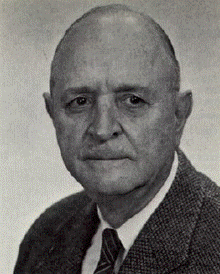
Marion Speed Boyd served as referee in Memphis from 1935 until 1937. Judge Boyd was born in Covington, Tennessee, on September 12, 1900. His parents were Alfred Boyd, Sr. and Mary Columbia Harris. He received the Bachelor of Laws degree from the University of Tennessee College of Law in 1921 and entered private practice in Memphis.
...
He was a member of the Tennessee House of Representatives from 1925 to 1927 and was then an assistant state attorney general of Shelby County, Tennessee until 1935, when he was appointed referee. He served as a Tennessee State Senator in 1935, Judge of the City of Memphis from 1937 until 1938, and attorney general for Shelby County, Tennessee from 1938-1940. Boyd was nominated to a newly-created position on the United States District Court for the Western District of Tennessee by President Franklin D. Roosevelt, and served from September 27, 1940, until his death on January 9, 1988.
[80]
[80] Federal Judicial Center, Biographical Directory of Article III Federal Judges, 1789-present , https://www.fjc.gov/history/judges
1937-1971
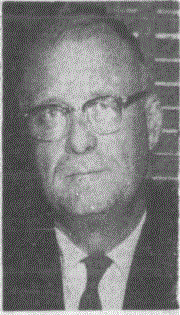
Carl R[ichmond] Graves served as referee in Memphis from 1937 until March 18, 1971. Judge Graves was born November 18, 1901, in Memphis and died July 11, 1985, in Destin, Florida. He served as a public defender and assistant district attorney general in Memphis before he was appointed Referee in Bankruptcy. According to Judge William B. Leffler, Judge Graves helped develop American bankruptcy law. Judge Graves attended Central High School and Cumberland University School of Law. He was one of the founding members of St. George’s Episcopal Church in Germantown, Tennessee.
March 1955 Referee Carl Graves visited Edward R. Sloan, Referee, Topeka, Kansas, and President of the National Association of Referees in Bankruptcy to review procedure of their two districts.
1938-1982
Bertha S. Betty Chism served as Chapter 13 trustee from the enactment of the Chandler Act in 1938 until her retirement in May 1982. It was believed that she disbursed well over $100 million to creditors during her career. In the year before her retirement, an all-time high of 6,100 bankruptcy cases were filed in West Tennessee, with almost 4,000 of them, or approximately 65 percent, filed as Chapter 13 wage earner cases. Mrs. Chism’s office was located on the second floor of the Federal Building. [87] [87] Henry Bailey, “Bankruptcy Court Indebted to Her,” The Memphis Press-Scimitar, 27 April 1982, p. 17.
1939-1942
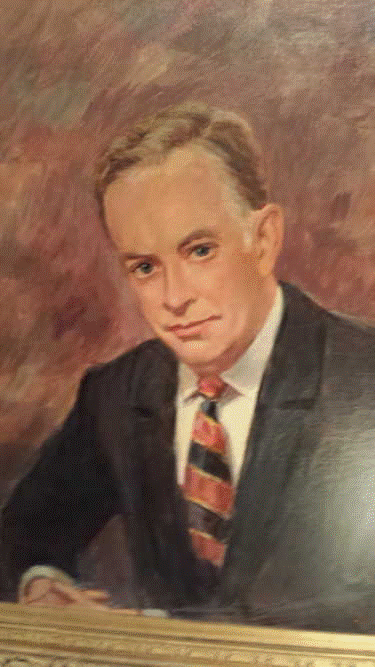
James D[avid] Senter, Jr. served as referee in Humboldt from 1939 until 1942. He served as President of the Tennessee Bar Association from 1969 to 1970. He was born April 28, 1905, in Gibson County and died January 30, 1981, in Gibson County.
1943-1946
Lawrence W[infield] Morgan, Jr. served as Referee in Brownsville from 1943 – 1946. Morgan was born in Trenton, Gibson County, Tennessee, on June 30, 1895, and died in Jackson on December 5, 1965. He practiced law in Brownsville and served in the State Senate two terms, 1923 and 1945. In 1945 he was Speaker of the Senate.
1958-1977
David C[ole] Doten, Sr. served as a referee in Memphis from April 1, 1958, until 1976.
Judge Doten was born May 13, 1906, in Omaha, Nebraska. He died February 5, 1978, in Memphis, Tennessee.
Doten served as a Warrant Officer from 1942 until 1947. As a Referee, Doten wrote to express concern about the Consumer Credit Protection Act that became effective July 1, 1968, because it allowed consumers to use credit cards to purchase consumer goods.
...
Doten said, “It would appear, from my observations, that the banks, in a desire to build up volume in this comparatively new banking service, have not investigated the moral and financial standing of the applicants as thoroughly as the should. Most of the banks and loan companies rely too much on the Tennessee garnishment laws to collet their bad debts. The national garnishment law, which becomes effective July 1, 1970, will do a great deal in causing a re-assessment of the credit structure in Tennessee.” Doten spoke out against the issuance of unsolicited credit cards, saying that credit cards were too easy to obtain. Doten served on the Committee of Referee’s Status and the Special Committee on Liaison with the Commercial Law League of the National Conference of Referees in Bankruptcy. He served on the Legislative Committee of the National Conference of Referees in Bankruptcy when the National Bankruptcy Commission was created to study bankruptcy in the United States. The work of this commission and the National Conference eventually culminated in the Bankruptcy Code of 1978.
40 NAT’L ASS’N REF. BANKR 34 (1966); Ban credit-card and check-credit plan, hearings before the Subcommittee on Financial Institutions of the United States Senate, October 9 and 10, 1968, pp. 140 and 142; 44 NAT’L ASS’N REF. BANKR 34 (1970).
Carl R. Graves and David C. Doten commenced the wearing of judicial robes in their courtrooms when they moved into new quarters (the Federal Building?). 38 NAT’L ASS’N REF. BANKR 13 (1964).
1964-1977
Frank Reid served as Bankruptcy Court Clerk from 1964 until January 1, 1974, when he was named District Court Clerk for the Western District of Tennessee. He retired from that position on September 30, 1992.
1966-1972
H[enry] Leroy Pope served as a bankruptcy referee in Memphis from 1966 until 1972. Born in Jackson, Madison County, on May 8, 1916; son of Henry Leroy and Lettie May (Garrett) Pope. Attended Jackson public schools; West Tennessee College, Jackson, 1936; Memphis State University, 1934-35; received LL.B. degree in 1941 from Columbus University School of Law. Practicing attorney in Jackson since 1946.
...
In World War II: Staff sergeant, 1055th Engineers, U.S. Army, 1943-45. Married in Jackson on November 1, 1946, to Violet Lucille McLemore, daughter of Charles Madison and Shelly Rose (Hawks) McLemore; children--Stephen Leroy and Susan Elizabeth Pope. Clerk, U.S. Civil Service Commission, 1937-40; Law Clerk, Administrative Office of U.S. Courts, 1940-42; Assistant Attorney, U.S. Engineer Department, War Department, 1942-43; Bankruptcy Referee, 1967; Madison County Judge, 1959-60. Member young Democratic Club, Chairman of Membership, 1946; member, Madison County Democratic Executive Committee, 1947-48. Member Methodist Church; Sunday School teacher; chairman, Board of Stewards, 1955-57. American Legion, Veterans of Foreign Wars; Moose; Sigma Delta Kappa fraternity. Member Tennessee and Jackson-Madison County bar associations, president of the latter, 1956-57. Special Attorney and Investigator for the Tennessee Licensing Board for the Healing Arts. Great-nephew of Mark Henry Taylor, sometime member Tennessee General Assembly. Pope was not reappointed to serve as referee in 1972. He died in Jackson on June 22, 1997.
Public Acts of Tennessee, 1947; Who's Who in United States Politics and American Political Almanac; Tennessee Blue Book, 1959, p. 139; Jackson City Directory, 1967; information supplied by Pope for the Biographical Directory of the Tennessee General Assembly available at tngenweb.org; John Parish, “That’s Politics,” Jackson Sun (Jan. 5, 1973), 9.
1971-1987
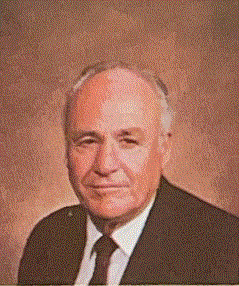
William B[lackburn] Leffler was appointed a Bankruptcy Judge for the Western District of Tennessee on March 19, 1971. He was later named Chief Bankruptcy Judge for the Western District, a position he held until his death on April 11, 1987.
Leffler was born October 29, 1922, in Memphis, Tennessee. He received his law degree from Southern Law University (now the University of Memphis School of Law) in 1949.
...
He was a part-time lawyer and member of the Chicago White Sox Baseball organization until 1958. Prior to his appointment to the Bankruptcy Bench, Judge Leffler was a Judge for the Shelby County, Tennessee Court of General Sessions from 1958 until 1963, and Trial Judge for the Tennessee State Circuit Court at Memphis from 1963 until 1971. He was an instructor in Criminal Law at the University of Memphis School of law and contributed articles to the National Conference of State Trial Judges’ Journal and the Memphis State Law Review. Judge Leffler was a member and past president of the Tennessee Judicial Conference; member and past president of the Memphis and Shelby County Junior Bar Association; and member of the Tennessee Bar Association, its Board of Governors, and an instructor for its Bar Review Course.
Judge Leffler was a fourth generation Memphian. As a youth, he was a Golden Gloves Boxer and an All-City Baseball Player at Central High School in Memphis. He attended the University of Tennessee and served in the United States Army Infantry during World War II, receiving two purple hearts.
Judge Leffler was married to Florence Horton Leffler. They had two children, Stephen, and Elise. In addition to his career and involvement in professional organizations, Judge Leffler was involved with numerous community organizations including the Memphis Boys Club and Memphis Ballet-Ballet South.
1976-1980
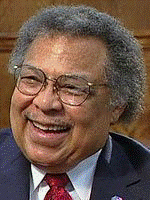
Odell Horton served as a bankruptcy judge from 1976 until 1980. Born in Bolivar, Tennessee, Horton served in the United States Marine Corps from 1946 to 1947, and again from 1951 to 1953. He received a Bachelor of Arts degree from Morehouse College in 1951, where he was a member of Alpha Phi Alpha fraternity, and received a Bachelor of Laws from Howard University School of Law in 1956. He was in private practice in Memphis, Tennessee from 1957 to 1962.
...
He was an Assistant United States Attorney of the Western District of Tennessee from 1962 to 1968. He was the director of the Division of Hospital and Health Services for the City of Memphis in 1968. He was a judge of the Shelby County Criminal Court in Tennessee from 1969 to 1970, and was then president of LeMoyne–Owen College from 1970 to 1974, also appearing as a commentator on WREC-TV (CBS) from 1972 to 1974. He was the director of Community Health Services, Mid-South Medical Center Council in Memphis from 1974 to 1976. He then served as a United States Bankruptcy Judge in the Western District of Tennessee from 1976 to 1980. Horton was the first African American to serve on the bankruptcy bench in Tennessee.
On February 27, 1980, Horton was nominated by President Jimmy Carter to a seat on the United States District Court for the Western District of Tennessee vacated by Judge Bailey Brown. Horton was confirmed by the United States Senate on May 9, 1980, and received his commission on May 12, 1980. Judge Horton was the first African American male to serve on a United States District Court in Tennessee. He served as Chief Judge from 1987 to 1994. He assumed senior status on May 16, 1995. Horton served in that capacity until his death of respiratory failure on February 22, 2006, in Memphis.
1980-2021

David S. Kennedy served as bankruptcy judge from 1980 until 2021. He served as chief bankruptcy judge from 1988 until 2021. Judge Kennedy was born in Scotts Hill, Henderson County, Tennessee, and moved to Memphis with his family as a child. He received his B.A. degree from the University of Memphis and his law degree from the Cecil C. Humphreys School of Law in 1970. He clerked for U.S. District Judge Robert McRae (1970-1971) before practicing law with Memphis Area Legal Services.
...
He served as a Bankruptcy Receiver and Trustee (1971-1973) and as the Clerk of the bankruptcy court (1974-1975), before entering private practice with the firm Burson & Burson, and with attorney David C. Doten, Jr., and serving as a Panel Trustee (1976-1980). Judge Kennedy served as an active member of the Tennessee and Memphis Bar Associations and in 1989 was awarded the Charles A. Rond Outstanding Jurist Award by the Memphis Bar Association. He is a fellow of the American College of Bankruptcy. Judge Kennedy was an active member and former chairman of the alumni board of the Cecil C. Humphreys School of Law. In 2011, he was honored as a Pillar of Excellence by the Cecil C. Humphreys School of Law where he served as an adjunct professor for over 20 years and where the Hon. David S. Kennedy Bankruptcy Achievement Award [Scholarship] Fund was established in his honor.
Richard J. Alley, “Kennedy Gives Back to U of M Law School,” Memphis Daily News (Sept. 16, 2010); Briefs: News + Events, University of Memphis Cecil C. Humphreys School of Law Magazine, Fall 2015 at p. 7,
online at https://issuu.com/univofmemphis/docs/172765_armd_uofm_law_magazine
1983
The Bankruptcy Court Clerk’s office moved from the federal building to the medical center on April 16, 1983. Edward L. Montedonico, Jr. was Bankruptcy Court Clerk.
1987-2006
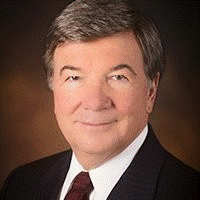
William Houston Brown served as bankruptcy judge in Memphis from October 1987 until his retirement on May 31, 2006. Brown was born and raised in Union City, Tennessee. He received his law degree from the University of Tennessee in 1973, where he was Order of the Coif. He then entered private practice in Jackson, Tennessee. From 1984 to 1985 he served as visiting professor of law at the University of Wyoming’s College of Law.
...
He is a member of the American Bankruptcy Institute and is a Fellow of the American College of Bankruptcy. He is the co-author of several texts, including Bankruptcy Exemption Manual, 2005 Bankruptcy Reform Legislation with Analysis 1st and 2d editions, Bankruptcy and Domestic Relations Manual and The Law of Debtors and Creditors, as well as bankruptcy form books, all published by Thomson Reuters. He is also a principal contributing editor for Norton Bankruptcy Law and Practice 3rd, published by Thomson Reuters. Judge Brown prepares a quarterly update of consumer cases for the Federal Judicial Center, which distributes those materials to all bankruptcy judges, and he is a speaker at the Federal Judicial Center’s annual seminars for bankruptcy judges. He also speaks regularly at seminars throughout the U.S. on consumer bankruptcy topics. Judge Brown is currently the editor and adviser to the Academy for Consumer Bankruptcy Education, the education arm of the National Association of Chapter 13 Trustees. In 2011, Judge Brown received the Excellence in Education award from the National Conference of Bankruptcy Judges, and in 2012, he received the Judicial Excellence Award from the American Bankruptcy Institute and Thomson Reuters Publishing Company.
[98]
[98] Consumer Commission, American Bankruptcy Institute, https://consumercommission.abi.org; Lesley J. Gudehus, “Judge William Brown Discusses Retirement,” Memphis Daily News (Mar. 30, 2006).
Consumer Commission, American Bankruptcy Institute,
https://consumercommission.abi.org;
Lesley J. Gudehus, “Judge William Brown Discusses Retirement,” Memphis Daily News (Mar. 30, 2006).
1988-1996
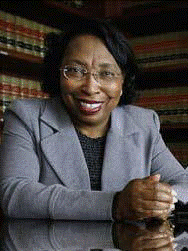
Bernice B. Donald served as a bankruptcy judge from 1988 until 1996. Judge Donald was born September 17, 1951, in DeSoto County, Mississippi. She received the BA (1974) and JD (1979) degrees from the University of Memphis. She was in private practice from 1979 until 1980, when she became a staff attorney for the Employment Law & Economic Development Unit, Memphis Area Legal Services. She served as an assistant public defender for the Shelby County Public Defender Office from 1980 until 1982. From 1985 until 1988 she served as an adjunct professor at the Cecil C. Humphreys School of Law.
...
Judge Donald was elected judge of the General Sessions Criminal Court in Shelby County from 1982 until 1988. In 1988, she was appointed United States Bankruptcy Judge for the Western District of Tennessee. She was the first African American female to serve as a bankruptcy judge.
On December 7, 1995, Judge Donald was nominated by President Bill Clinton to a seat on the United States District Court for the Western District of Tennessee. She was confirmed by the Senate on December 22, 1995.
On December 10, 2010, President Barack Obama nominated Judge Donald to a position on the United States Court of Appeals for the Sixth Circuit. She was confirmed by the Senate on September 6, 2011. Judge Donald assumed senior status on September 27, 2022, and retired from active service on January 20, 2023.
1993-2012
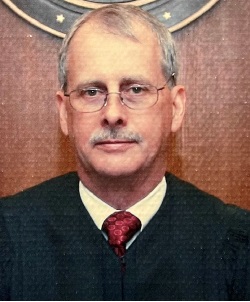
Federal bankruptcy Judge G. Harvey Boswell retired from the bench on July 8, 2012, after 19 years of service. He was appointed to the U.S. Bankruptcy Court, Western District of Tennessee, Eastern Division, on Nov. 16, 1993, the first judge to be permanently assigned to that court. Judge Boswell also served a four-year term as a judge on the Bankruptcy Appellate Panel for the Sixth Circuit from 2009 through 2012.
...
Judge Boswell obtained his J.D. from the University of Memphis-Cecil C. Humphreys School of Law in 1979. He received his B.S. from the University of Tennessee at Martin in 1969. Prior to his appointment to the U.S. Bankruptcy Court, Judge Boswell practiced law as an associate in the Law Office of Dwight Hawks, Humboldt, Tennessee, from 1979-1980; as a solo practitioner in Milan, Tennessee, from 1980-1983; as a partner with Kizer, Bonds & Boswell, in Milan, from 1983-1985; and then with Kizer, Bonds, Boswell & Crocker, Milan, from 1985-1993. He served as an Assistant Attorney for the City of Milan from 1985-1993. He is a Fellow of the Tennessee Bar Foundation.
1997
Jennie D. Latta was appointed to the position vacated by Judge Donald in 1997. Judge Latta served on the Bankruptcy Appellate Panel from 2003-2007. Upon the retirement of Judge Kennedy, Judge Latta was appointed to a four-year term as chief bankruptcy judge.
2006-2020
In 2006 it took two judges to replace Judge Brown when Judges George Emerson and Paulette Delk were appointed. Judge Emerson had been serving as a second Chapter 13 trustee in Memphis. Upon his appointment to the bench, Sylvia Ford Brown was made the second trustee for Memphis. Judge Delk came to the court after serving as professor of law at the Cecil C. Humphreys School of Law.
Both Judge Emerson and Judge Delk retired in the summer of 2020 -- during the midst of a world-wide pandemic. The temporary judgeship occupied by Judge Delk was not extended. Judge M. Ruthie Hagan was appointed to the position previously held by Judge Emerson on October 6, 2020.
